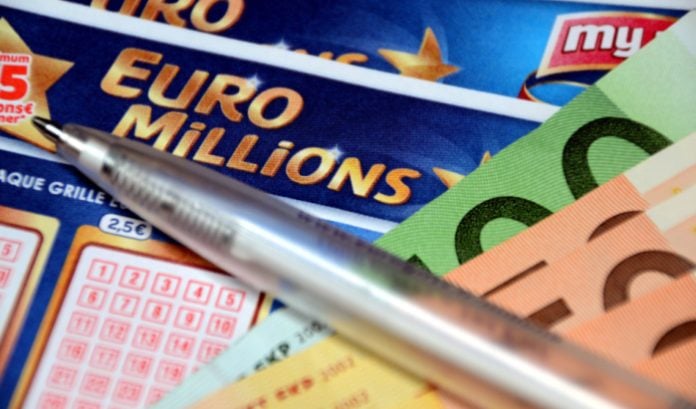EuroMillions has confirmed that the jackpot cap has been raised to €240m after Camelot revealed a UK player had won a record jackpot of €230m (£195m) playing the game this week.
It was confirmed on Wednesday that a single player in the UK had matched the winning numbers of 06, 23, 27, 40, 41 and Lucky Stars 02 and 12 to become Europe’s biggest ever lottery winner.
This marks the fourth time the record has been broken in the last two years, with a French player winning €200m in December 2020, a Swiss player winning €210m in February 2021, and another French player winning €220m last October.
The records have been continuously broken, EuroMillions stated, because the rules ‘allow for the jackpot cap to increase by €10 million after someone has won the maximum amount’.
Therefore, the limit has been raised to €240m, making it possible for another player to break that record again in the coming months.
This week’s major winner is the second record to be broken in three months after Joe and Jess Thwaite became the National Lottery’s biggest winners, striking £184.8m on the EuroMillions draw held on May 10.
Whilst it is undoubtedly a celebratory time for the Thwaite’s, and indeed the latest UK player to hit the jackpot, it does raise questions over the responsibilities of lotteries and how they treat their winners.
All too often there are stories of lottery winners who blew their money, or in fact, felt that the funds negatively impacted their lives, leading some to question whether lotteries should provide support to jackpot winners to prepare them for some of the life changes that could happen.
Writing for Lottery Daily back in June, Jari Vähänen of The Finnish Gambling Consultants noted that, whilst it is important for players to be aware of the lifestyle risks associated with lottery wins, it is not the responsibility of lottery operators to mollycoddle winners and tell them how to spend such funds. He also detailed the ‘excellent guidelines for responsible gaming’ put in place by many bodies including the WLA and EL.
He wrote: “The general premise has been that the role of gambling companies is to prevent gambling problems in advance. On the other hand, it is not up to the companies to take care of the treatment of those problems. In many countries, the state collects money from lottery companies to treat problems caused by gambling.
“Still, the treatment itself belongs to a society or health care, just like the situation is with alcoholics. I think the treatment of winners’ problems should work the same.
“Lotteries should provide winners with guidelines for future life changes, but in the event of any problems, it should be the responsibility of others to arrange treatment.
“The lottery should be responsible for providing support or guidance so that winners do not let the money negatively impact them. However, it is not the role of the gambling company to provide investment advice.”




























